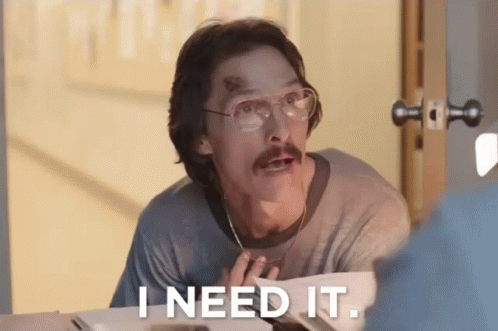In our last class discussion, we talked about regulations and prohibition. One of the main points in our discussion is how prohibiting certain products from the market creates a huge demand for those products allowing the most gruesome and relentless people to take control of that market. The events that take place in the movie “Dallas Buyers Club” are perfect examples of how regulations and prohibitions in healthcare create opportunities for people who are willing to take risks in a market even if it’s illegal.
The healthcare industry is interesting because there are no fixed prices on the service or the product being provided. Different people in different situations value the product they are receiving differently. In a life-or-death situation, someone will be willing to pay a lot more than someone not in a life-or-death situation. The movie “Dallas Buyers Club'' definitely portrays a bias towards the FDA, but rightfully so. The FDA takes too long to approve drugs that could potentially save people's lives. Going back to the documentary “They Say It Can't Be Done” and 3D printed organs. 3D-printed organs could be mass-produced and save the lives of many people, but due to regulations, we can't make this possible without regulations being more adaptable to innovation. In “Dallas Buyers Club” the drug the FDA approved known as AZT was toxic and harmful to the people treated with it, but medical professionals and FDA pushed for it because the people behind AZT had money and they wanted to make a profit. Ron Woodford, the main character in “Dallas Buyers Club” sees the corruption of the FDA and the harmful effects of AZT being a patient diagnosed with AIDS himself. Ron shows us entrepreneurship when he essentially starts his own personal practice selling the drugs he discovered and treated himself within a makeshift hospital in Mexico after he became desperate when the AZT he was being treated with proved ineffective. Ron's self-treatment proved effective, extending his life by seven years proving the doctors that said he had thirty days wrong.
During this time period aids was a huge problem and the healthcare industry and FDA were under a lot of backlash from people whose lives depended on a drug that could at least slow down the progression of the virus. After Ron treated himself and realized how effective his treatment was he recognized the need for this treatment and the opportunity to make a lot of money. That's when he started the Dallas buyers club selling unapproved untested drugs from Mexico selling memberships for four hundred dollars for a month's supply of everything they needed for treatment. Society's reaction to Ron's new start-up was very positive because he was supplying desperate people, affected by HIV and aids, with effective treatment.
Ron's entrepreneurial abilities brought an effective drug to market and extended many people's lives, bringing awareness to regulation and corruption of the FDA and healthcare. Although it was illegal he showed us entrepreneurship on a new level and showed great skill when entering the market. In summary, the regulations and prohibition of products in healthcare, although important, can discourage innovation and prevent certain products from entering the market that could greatly help if not save the lives of the people who need that product.
